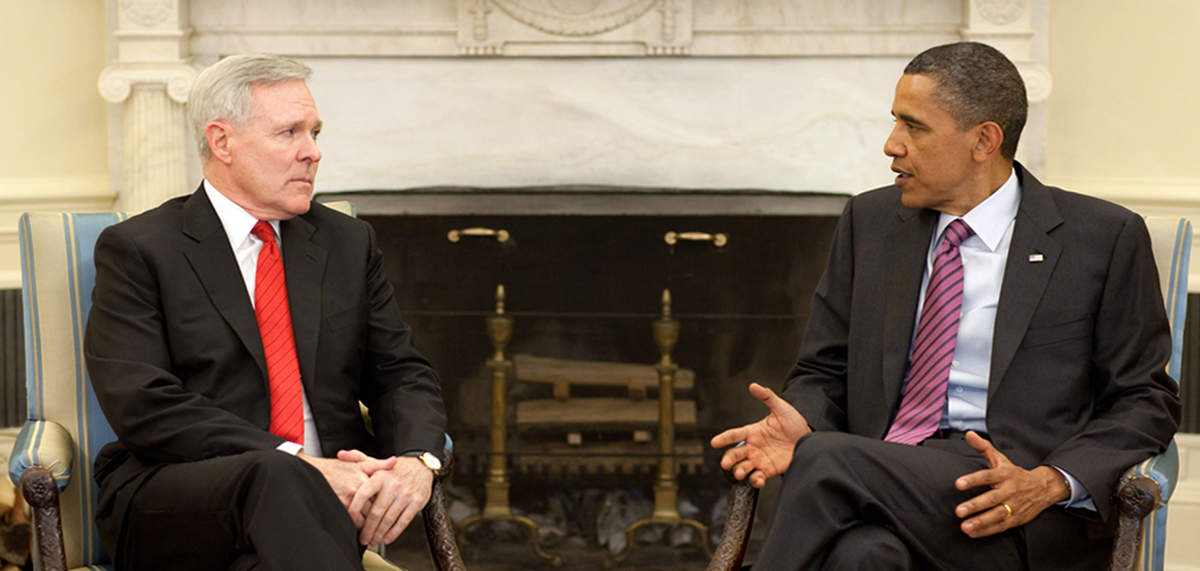Letter from Secretary of the Navy Ray Mabus to President Barack Obama (PDF)
WASHINGTON, D.C. 20350-1000
December 16, 2015
The President
The White House
1600 Pennsylvania Avenue
Washington, DC 20500
Dear Mr. President,
Thank you for the opportunity to provide comments in response to a letter from Senators Barbara Boxer and Dianne Feinstein requesting executive action on behalf of 50 Sailors convicted of mutiny following the Port Chicago disaster of 1944. The Navy strongly supports pardons or other executive action on behalf of the Sailors so long as those actions do not adversely impact the integrity of the military justice process.
The tragic accident occurred in July 1944 during the loading of munitions onto the S.S E.A. Bryant. Due to racial attitudes at the time, African American Sailors primarily loaded and unloaded munitions onto the ships. Loading and unloading of munitions was inherently dangerous work. During the loading, an explosion ripped the ship to unrecognizable pieces and tore apart the S.S. Quinalt Victory, which was moored beside the Bryant. The accident kilied 320 U.S. Sailors, 202 of whom were enlisted African American Sailors. In August 1944, 328 enlisted Sailors were ordered to load munitions onto a different ship. Afterwards, 258 African American enlisted Sailors refused to load the munitions; 208 were taken to summary court-martial for disobeying an order, and 50 were taken to general court-martial for mutiny.
All 258 cases were subjected to legal review on multiple occasions. The first review by the Department of the Navy was in 1945. Separate from this review, President Truman granted clemency in the form suspending all confinement at the end of World War II and upgrading all discharges to the equivalent of general discharges (under honorable conditions). All cases were again reviewed in 1992 pursuant to an act of Congress. That review set aside Seaman Second Class Samuel Cooper's summary court-martial conviction. In 1999, Mr. Freddie Meeks, one of the 50 Sailors convicted of mutiny at a general court-martial, obtained a pardon based on demonstrated good citizenship. In 2001, 79 members of Congress requested a blanket pardon of the remaining 49 Sailors who received a general court-martial conviction. The Navy's position in 2001 was that each sailor should submit an individual request for pardon and that each request would be independently considered. I do not favor this view. While it is important to preserve the integrity of the process relative to these cases, we should not ignore the circumstances of the African American Sailor of the 1940s.
The record does not reflect that any specific bias occurred in the handling of these cases. Consequently, to characterize these convictions as contrary to law or procedure may impugn the legal sufficiency of all courts-martial convened prior to the end of WWII, which were conducted in accordance with the prevailing legal standards of that time. However, in light of the well-documented challenges associated with uniformed service by African Americans during that era, I strongly support executive action in favor of the 49 remaining Sailors with general court-martial convictions or the 207 with summary court-martial convictions.
Thank you for your time and attention on this matter. If I can be of any further assistance, please let me know.
Respectfully yours,
Ray Mabus
Copy to:
Office of Legislative Affairs
Oftice of the Judge Advocate General

